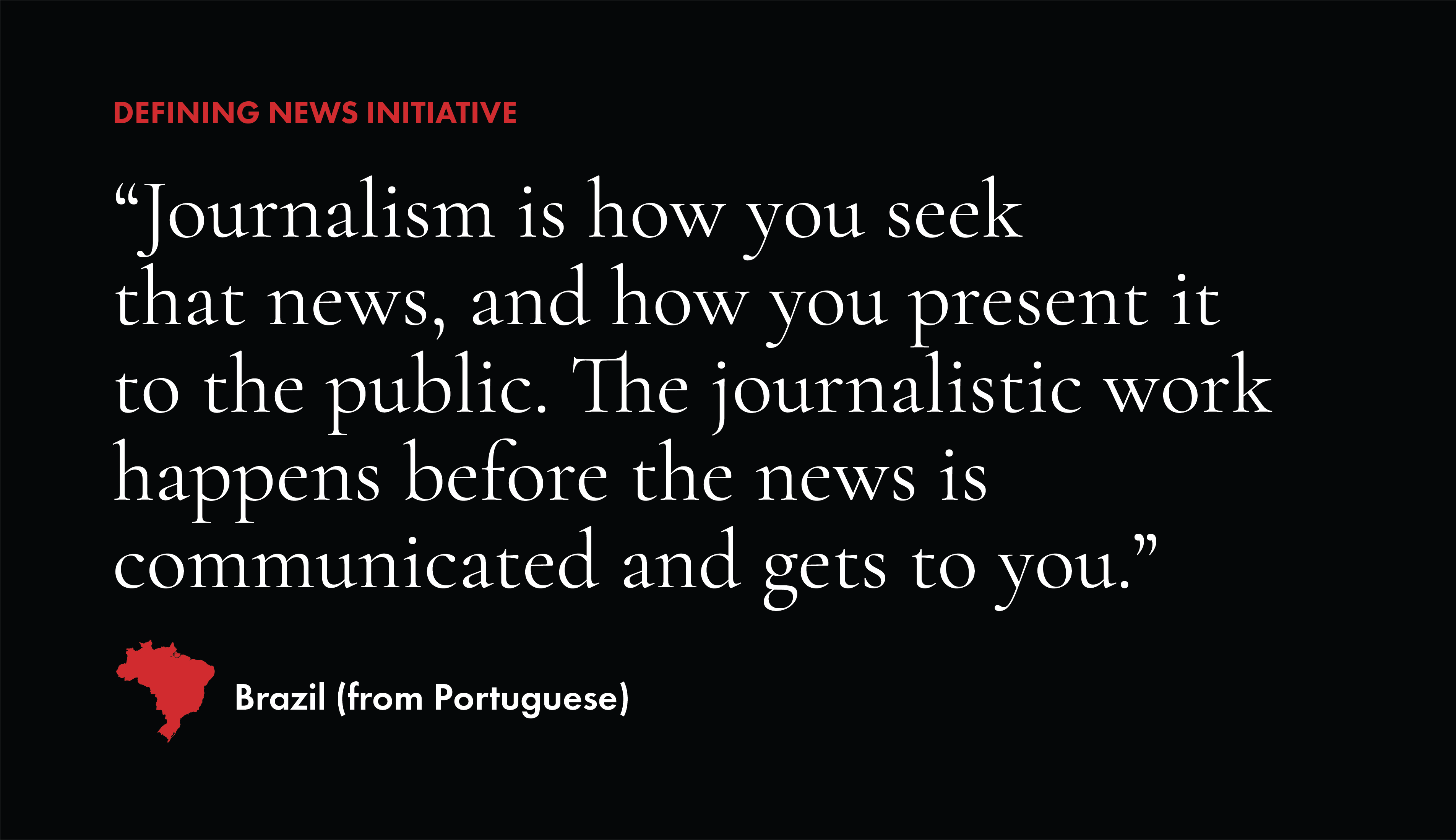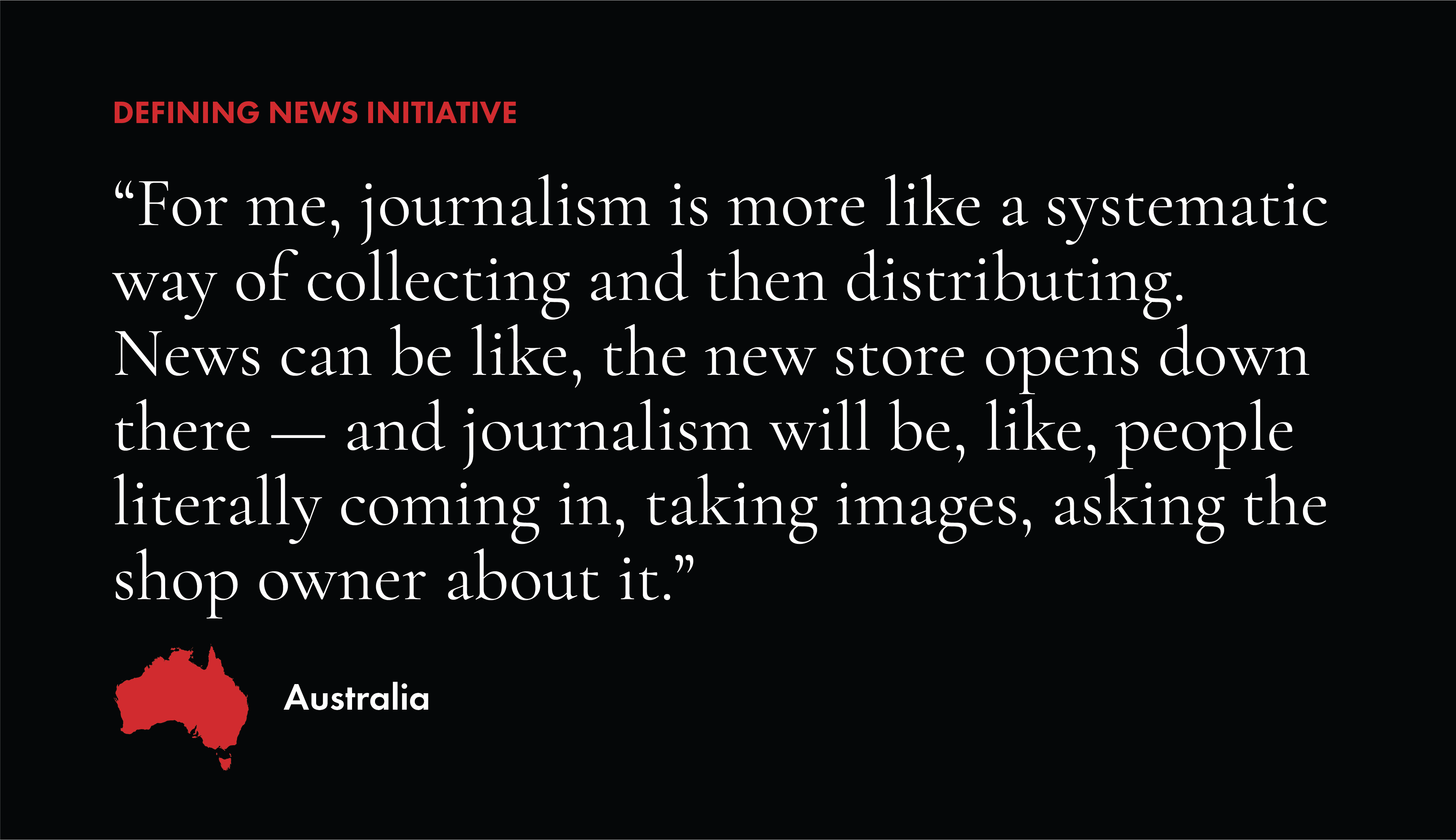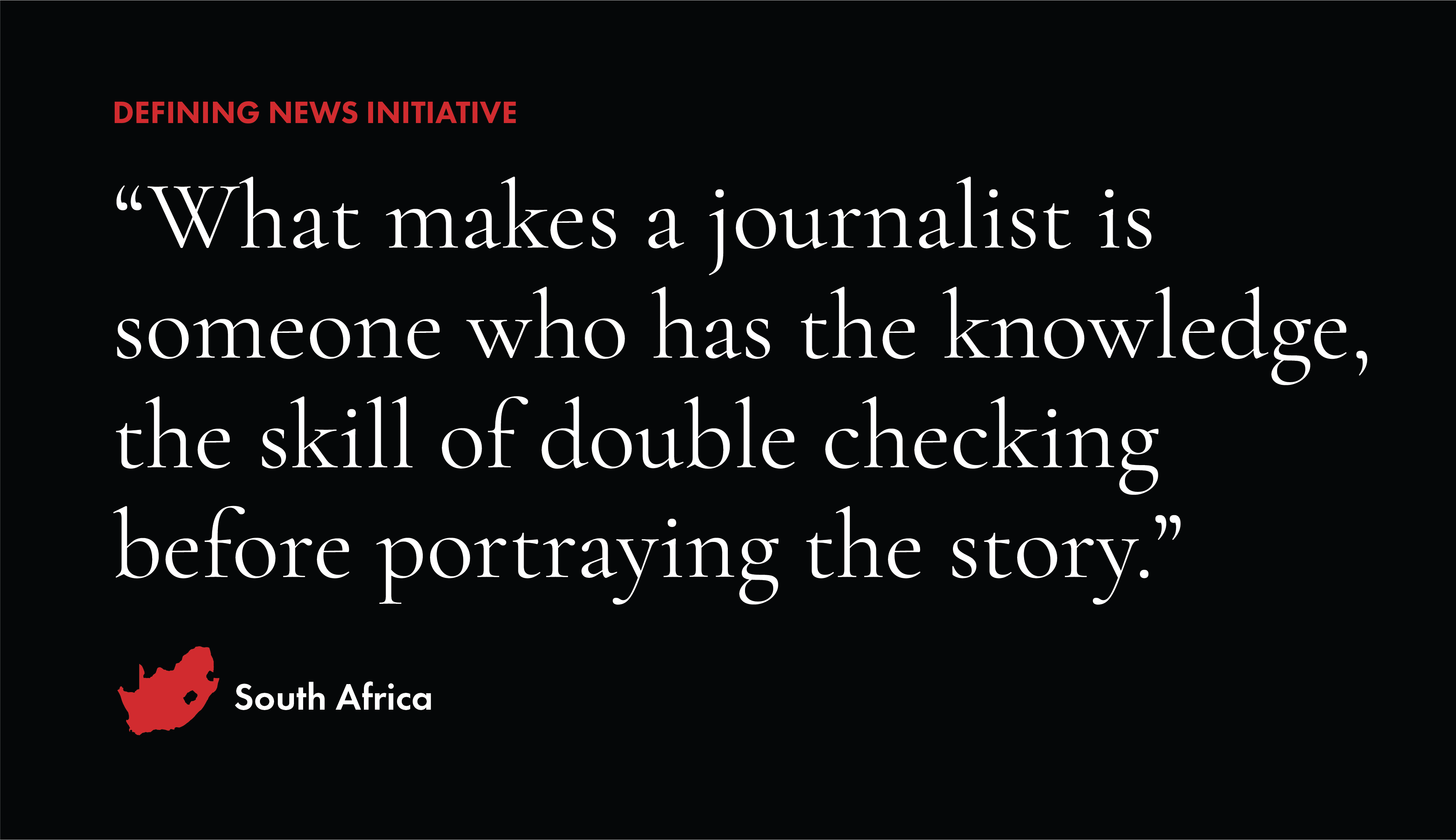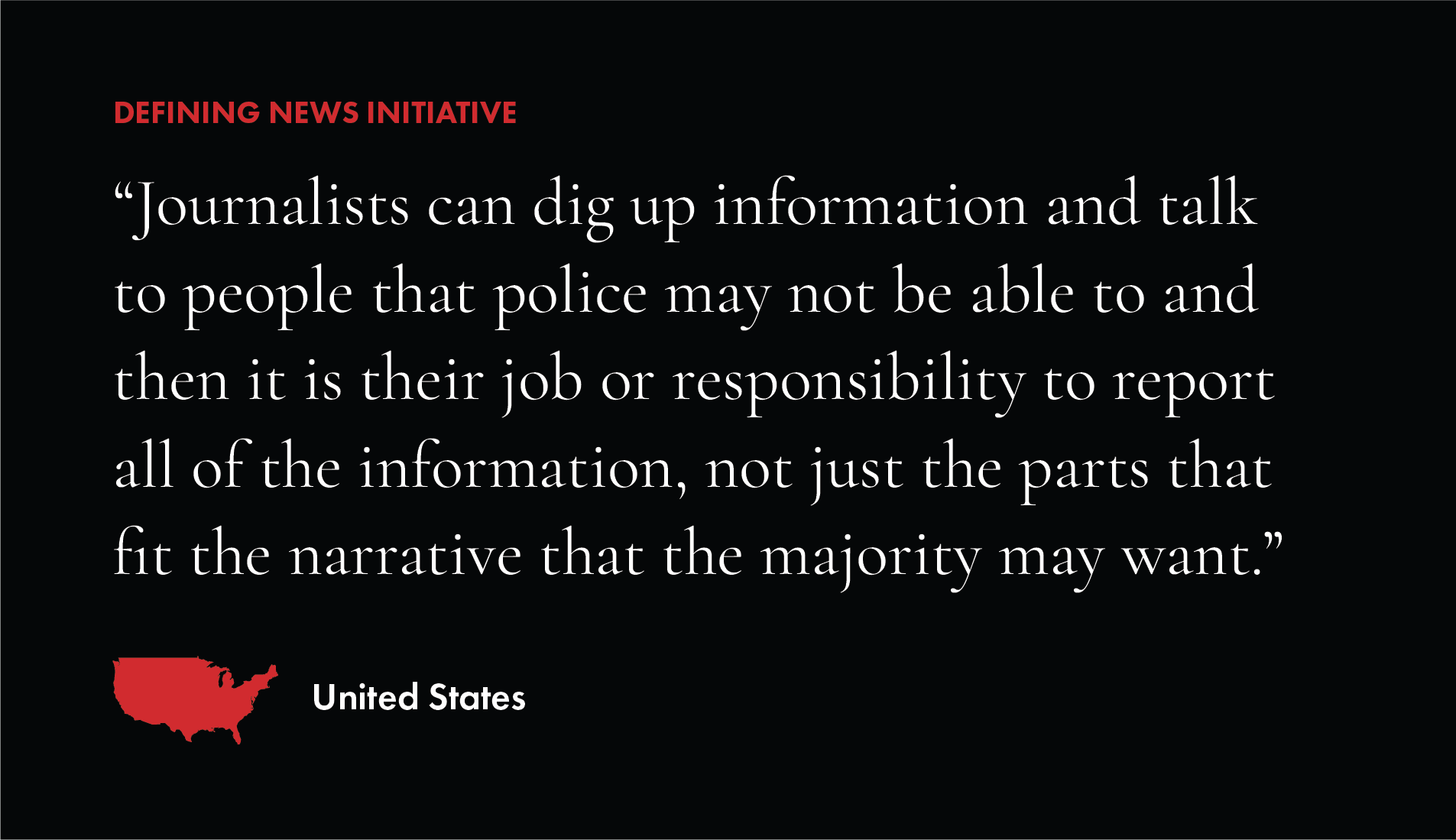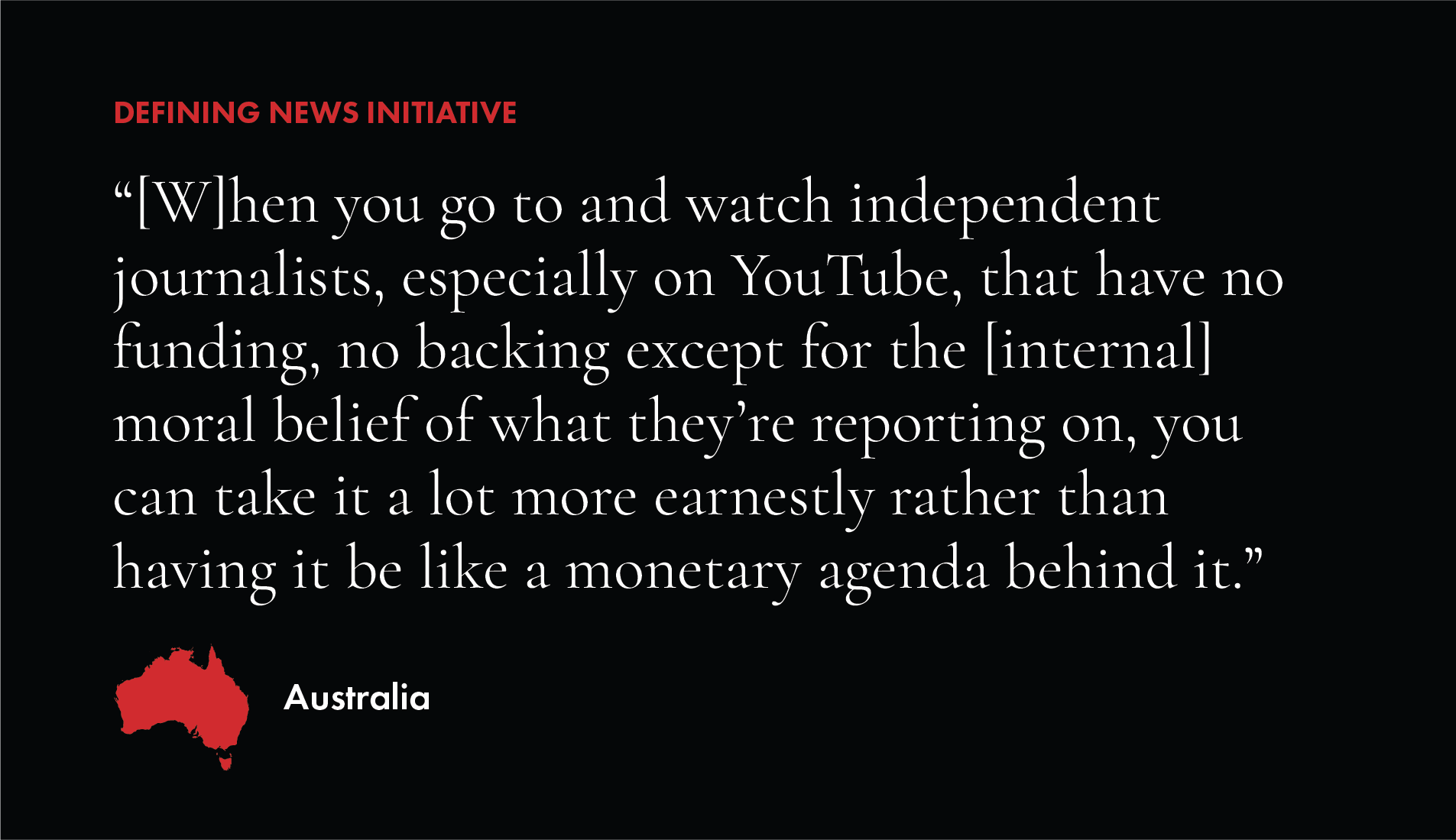By Celeste LeCompte, Amy Mitchell, and Daniela Flores
Among professional circles, there is a great deal of concern about the future of journalism. Much of the concern stems from recent developments that directly affect the ability of news organizations to operate: trimmed budgets, laid off staff, and in many cases, shuttered doors around the world. There is a persistent sense among both media and democracy professionals that, despite the emergence of new digital outlets and an abundance of content across many more digital platforms, the supply of high-quality journalism has taken a hit, and with it the availability of critical information to inform civic participation. At the same time, surveys of news consumers report a sizable number of individuals are now actively avoiding or managing their exposure to news at least some of the time or around particular topics.
As society aims to address some of the challenges that may contribute to these twin problems of supply and demand, CNTI is examining how legislation and other actions can best support a truly sustainable news ecosystem, including what news and journalism mean to people in a shifting media landscape.
In June 2024, we conducted a series of focus groups with individuals across Australia, Brazil, South Africa and the United States to better understand how the public defines “news,” “journalism” and “journalists” and the role that each of them play in keeping individuals informed about important events and issues. We also explored how participants understand the role of technology, and AI in particular, in shaping their information access and environment. This essay — exploring how the participants define the key terms of “news,” “journalism” and “journalist” — is the first in a series that highlights themes from the discussions. We felt that there were clear enough themes to share publicly with the note that these are qualitative insights that will be further explored in quantitative surveys in each of the four countries.
Each focus group included participants with a mix of socio-demographics and levels of interest in keeping up with current events. More information about the focus groups can be found at the end of this essay.
Key Observations
- News is described as that which is recent, factual and relevant to a broad audience (not just an individual or small group). Participants understand news to be something that is verifiable but also that it can range widely in terms of quality, from reliable, verified information to biased or inaccurate “fake news.”
- Journalism is a process of independent, thorough research and storytelling, informed by a clear set of ethical and moral values; news produced through this process — sometimes also referred to as journalism — was seen positively. Understood this way, most participants agreed that journalism can be and is done by non-journalists when certain other criteria are met, such as the ability to communicate information effectively to a broad audience.
- Journalist is a term that is used in multiple, sometimes conflicting, ways. Participants used “journalist” to refer both to individuals who follow the process of journalism to create news, and to individuals creating content within recognizable media organizations, regardless of their work quality. Not all journalists are viewed positively, and one does not have to be a journalist to produce journalism.
We delve into these themes in detail and highlight important nuances in how the public thinks about these concepts across different contexts.
What makes news, news?
There were a few key criteria that distinguished “news” from other kinds of information among participants across the four countries: recency, relevance, and verifiability were key ideas that came up for many people, with some broad variations in how those terms were defined.
Recency
Across the majority of groups, participants said that news needs to be about recent events or new information. This was particularly salient for events with dynamically changing conditions, from weather and traffic to natural disasters and elections.
“The question is in the answer. When it’s news, when it’s something we don’t know about, it’s new to us.” (Brazil, from Portuguese)
Impact
In order to be news, and not just information, many participants expressed a sense that it was new information of importance that reaches a broad audience — not just themselves.
“What makes information news is something that is current, something that is affecting our youth, something that is affecting the citizens of South Africa.” (South Africa)
“News is something that reaches many people.” (Brazil, from Portuguese)
Verifiability
Participants agreed that news is about accurate facts — and accurate facts can be verified. Many participants characterized news as having qualities that make it less subject to interpretation and more possible to confirm its accuracy:
Simple: The examples that participants gave of “news” were often very simple — someone did something, an event happened, someone died, a team won.
“When I think of news, I just want an informational update of highlights of impactful events. I do not want an angle, an opinion, an emotion, or something filtered. If XYZ event happened, just tell me that.” (United States)
Neutral: Participants often said that they believed news is only information that is presented without opinion or bias.
“Yes. I would say that news has to be unbiased. If it’s biased, it’s an opinion, not news.” (Brazil, from Portuguese)
Direct: A number of participants expressed a preference for news to be information provided by a source with first-hand knowledge or experience. Original social content — videos and photos, in particular — and on-the-scene reporting helped these participants feel that the news was more “reliable.”
“The news that is given to you live is true. But if it’s published later on, or if it’s communicated later on, then it can be edited and not necessarily true.” (Brazil, from Portuguese)
“So normally, we trust the journalist that is reporting on the news cause you see them on the TV, they are actually doing the interview direct. […] So there’s no third party involved here. I don’t like third party’s opinions. I like to see the real thing. So if the journalist is having an interview with anybody, a minister or whoever, you get it straight from the horse’s mouth, as you would say it.” (South Africa)
Across groups and countries, “news” existed on a spectrum of quality.
Participants reported encountering an abundance of news that is recent and high-impact but that they felt required additional verification. (We will return to this topic in a future essay.)
Several participants used the term “fake news” to describe such information — typically, a story about recent events with broad reach or impact. Among participants who valued neutrality or directness of the reporting, factually correct news that lacked these qualities was nearly as likely to be deemed “fake news” as factually inaccurate information.
“There’s more fake news on the Internet. There’s more biased information on portals and news providers.” (Brazil, from Portuguese)
“Politics is what you get the most, the biggest amount of fake news. Because when you’re talking about education and health, it always has that political bias. At the end of the day, there’s lots of fake news.” (Brazil, from Portuguese)
At the other end of the spectrum, frequently, was journalism.
What makes journalism, journalism?
Across countries and specific focus groups, participants had a strongly consistent understanding of journalism. The majority of participants understood journalism to be a kind of information that is defined by the way in which it was produced:
A Robust and Ethical Process of Research and Reporting
“It’s the process to get the facts straight and correct before presenting to the public as news. Journalism, when done correctly, is the work done before it gets to the news.” (United States)
“Journalism is how you seek that news, and how you present it to the public. The journalistic work happens before the news is communicated and gets to you.” (Brazil, from Portuguese)
“For me, journalism is more like a systematic way of collecting and then distributing. News can be like, the new store opens down there — and journalism will be, like, people literally coming in, taking images, asking the shop owner about it.” (Australia)
Because participants understood journalism as activities done by a specific actor, they often described those activities as a way of explaining what makes journalism distinct from news and other information. (Many used the word “journalist” to describe the actor; we’ll look closer at their understanding of this term in the next section.) Typically, journalism is understood to be:
Well-Researched
It was frequently important to participants that someone doing journalism should have specific skills that allow them to uncover details of information that other people would not have the ability or time to discover.
“What makes a journalist basically is somebody who has the knowledge, who has the skills, and has the certain type of skill of double checking before portraying the story.” (South Africa)
Mission-Driven and Ethical
Participants broadly understood journalism to be mission-driven, with practitioners motivated by ethical and moral qualities, in pursuit of the truth.
“They need to be ethical. They need to be unbiased, and they need to be able to put their feelings aside, should the topic be something that is what we call a conflict of interest to them.” (South Africa)
“A journalist has to be passionate about what he does. It has to be a calling. […] Because when the person knows that their work will have an impact on people, will change people’ lives, they’re passionate about it.” (Brazil, from Portuguese)
“If it was about their nature, you would want someone who was ethical […] inquisitive.” (Australia)
Well-Crafted
As a form of news, journalism needs to reach an audience to be considered journalism. Participants nearly always referenced communicating as a part of the process of journalism, alongside research.
“That information could be kept digitally, or it could be kept in a book, or it could be kept in a podcast so that other people can listen through, or it could be kept visually for people who can’t read or something, but they can see, they can tell details. That’s the journey of journalism.” (South Africa)
“News is happening, journalism is storytelling.” (Australia)
“I think that’s where, then, the need for journalism comes in: to take raw information and be able to push it in a way that certain people can understand it to their best level of understanding.” (South Africa)
Who’s a journalist and who can do journalism?
We encountered diverging opinions about what makes a journalist, a journalist and who can produce journalism, with disparate viewpoints expressed by participants within the focus groups, as well as differences by country.
In the beginning of most conversations about what “journalism” is, many participants used the word “journalist” to describe the individuals doing the work of journalism and producing high-quality news that they could rely on.
Throughout the conversations, they also regularly used the word “journalist” to refer to professionals working inside mainstream news organizations. In many cases, specific professionals working inside mainstream news organizations — most often television and digital outlets — were raised as examples of individuals whose work lacked sufficient research depth, ethical standards, or social value to be considered journalism.
As the conversation deepened, we saw participants wrestle with the tension between these two uses. In conversations, we noted that a decline of trust in institutions and formal expertise, growing use of technology, and even the changing nature of work seem to be driving a shift in how individuals judge someone’s qualifications to do journalism.
Ultimately, most participants agreed that journalism, as a rigorous, ethical process, could be done by individuals who are not professional journalists, as long as certain criteria were met — and often done in ways that are superior to journalists. It was even suggested by some that artificial intelligence could be a journalist if it met those criteria. (We will explore this topic in a future essay.)
There were three primary characteristics that participants identified as necessary for someone doing journalism.
High-Level Skills
Participants expect journalism to include in-depth research, meet ethical standards, and be communicated clearly. As a result, they understand the individuals creating it to require a significant set of skills.
“A journalist is someone who would seek the truth and present it to us accurately in a fair and unbiased manner, and someone who can take accountability for their actions…And someone who is transparent about their sources, as well as someone who can fact check their own information, and someone who is rigorous and really determined to uncover the truth.” (South Africa)
“I know that they have, like, a code of ethics that they kind of need to follow, and I think that’s important. […] Obviously, the rules that apply to all people in a profession, you know, like builders have rules, journalists have rules… if people are taking that on, then anyone can be a journalist.” (Australia)
A number of participants, particularly in Brazil, said that the skills required to do journalism needed to be acquired through formal training or education.
“I believe that they have to go to school and be educated about the topic because they have to learn ethics, they have to learn lots of different topics. You have to know it all to be considered a journalist.” (Brazil, from Portuguese)
“[T]hough in order for you to be a real one [journalist], then that’s where you need to go and study media or study communication, then you become a real journalist.” (South Africa)
“To me, Journalism is a profession that required years of training and experience. Anyone can report on something they saw or experienced, but a Journalist has training on how specifically how to best provide that communication in unbiased, succinct, accurate ways.” (United States)
Other participants put less emphasis on formal training, and more on personal aptitude, on-the-job learning or on transferable skills from other analytical roles; often, these participants referenced this expectation as new, based on changing market conditions or cultural expectations:
“I think some people just have a natural talent for it where, you know, they don’t actually need to go and study or get a qualification. And you find that they go ahead and make it on their own.” (South Africa)
“I was saying that nowadays, you don’t need a diploma anymore. But a person who gives a piece of news goes after facts. The person comes across facts, works, that fact that person is ethical. The person goes after the information that substantiates that news. That person can be considered a journalist, but many have a diploma as well.” (Brazil, from Portuguese)
In neither case did the participant consider it necessary or even advantageous for someone producing journalism to work within a formal institution or organization.
Iconoclasm
Participants described journalism creators as independent from political or financial influences, unbiased, and willing to pursue unpopular stories. In several instances, in-depth research was valued because it can yield new information that challenges the status quo or official narratives.
“Journalists can dig up information and talk to people that police may not be able to and then it is their job or responsibility to report all of the information, not just the parts that fit the narrative that the majority may want.” (United States)
“I would say it’s presenting the unpopular side of things. You think of, say, someone like Louis Theroux. He does documentaries on people who are not pleasant people, but he shows them in a light where they are human, where you may come to understand why or how they’ve come to form their beliefs or do what they’ve done. […] It’s actually showing them for the multifaceted individual that they are and goes that deeper level.” (Australia)
While some participants believed that professional journalists are the best practitioners of journalism today, many more expressed concerns about mainstream media organizations and television broadcast personalities for lacking this quality.
Participants cited political bias, personal ambition, corporate consolidation, and both individual and corporate financial incentives as reasons professional journalists veer from producing journalism. This follows years of research showing a global decline in trust of institutions, including media organizations. These concerns were particularly prevalent in South Africa and the U.S., but were present in all countries.
“I mean they should be just covering the news to cover the news but honestly, they hype stuff up and have their own aims in their careers. They are writers/communicators and benefit from making a name and a reputation for themselves. I’ve seen so much stuff that is just over-hyped but it creates viewership.“ (United States)
“Journalists in South Africa are not independent; they are to push an agenda. […] They are told, ‘you can’t write about that.’” (South Africa, from Zulu/English)
This also sometimes meant that individual content creators — especially YouTubers and podcasters — with more extreme/less mainstream political or social views were cited as examples of non-journalists doing journalism.
“[W]hen you go to and watch independent journalists, especially on YouTube, that have no funding, no backing except for the [internal] moral belief of what they’re reporting on, you can take it a lot more earnestly rather than having it be like a monetary agenda behind it.” (Australia)
A Platform
For many participants, someone doing journalism needs to have a platform for reaching many people. In some cases, participants described a platform as ensuring that information can reach people for whom it is relevant. In other cases, having a platform provided a form of accountability for information, subjecting information to the scrutiny of courts, regulators, and social media fact-checkers.
“They can’t just put things out there that are not true because they’ll get sued, obviously.” (South Africa)
Working for a recognized news organization can provide both of these benefits, for some participants.
“Reputation is huge to me. Anyone can (and does) post to social media. Compare that to your Politicos that does actually have standards and doesn’t just sell out to whoever bids the highest.” (United States)
“A journalist is someone [who] will give, where, what, why and what. He knows, ‘by the time I put that article on the internet, I need facts because if something comes up, my boss is going to put me in the firing line.’” (South Africa)
However, many more participants described a changing landscape in which many independent creators have access to platforms that provide the kind of reach that matters.
Beyond definitions
This essay is the first in a series of insights drawn from these focus groups. Even as CNTI uses the full focus group discussions to inform a much larger quantitative survey in the fall, we felt it was worth sharing some insights now. Forthcoming insight pieces will explore participants’ thoughts on uses of AI in journalism, the role of technology in getting informed, and decision-making around who to rely on and how to verify information.
About the Defining News Initiative
The Defining News Initiative is an 18-month effort that seeks to understand how concepts of journalism, news and information access are being defined in countries around the world. In three different realms — in legislation, among the public and among journalists themselves — our research and analyses will provide clarity and insight on the importance these definitions play in safeguarding an independent news media, freedom of expression, and the public’s access to a plurality of news in ways that inform policy discussions and decision-making.
How We Conducted This Research
CNTI contracted with Langer Research Associates to recruit participants for a combination of virtual — synchronous and asynchronous — and in-person focus groups, and focus groups moderators, in four target countries: Australia, Brazil, South Africa, and the United States.
These countries were selected strategically to capture geographic, cultural, and political contexts, as well as different news environments. Our recruitment efforts involved a screening questionnaire that asked potential participants about their information-seeking interest and behavior, prioritizing, but not exclusively relying on responses from individuals who reported that they keep up with events and issues of the day in some capacity. We recruited a total of 89 participants from these four countries (22 in Australia, divided into 2 groups; 25 in Brazil, divided into 2 groups; 29 in South Africa, divided into 3 groups; 15 in the U.S.), which we conducted between June 3 and June 7, 2024. In our recruitment efforts, we were intentional about maintaining diversity based on gender and age.
Recruitment and focus group discussion materials were designed by CNTI researchers and were reviewed by Langer Research Associates, local vendors and others with research and subject matter expertise. All focus groups in Brazil were conducted virtually in Portuguese and one focus group in South Africa was conducted in-person, with participants conversing both in Zulu and English. For focus groups conducted in languages other than English, such as the ones in Brazil and South Africa, transcripts were translated into English.

